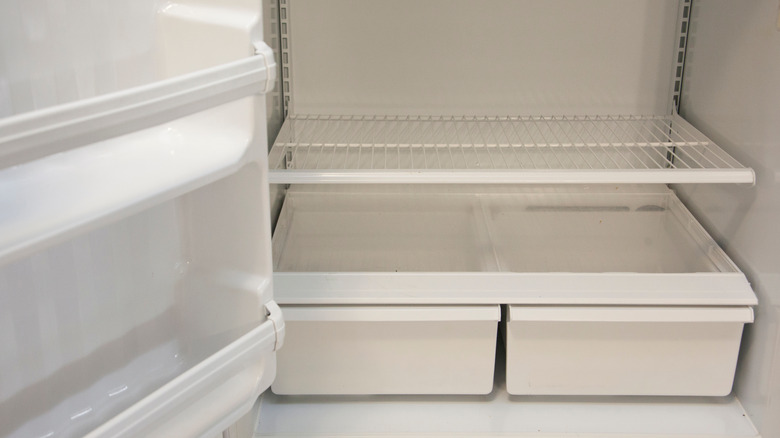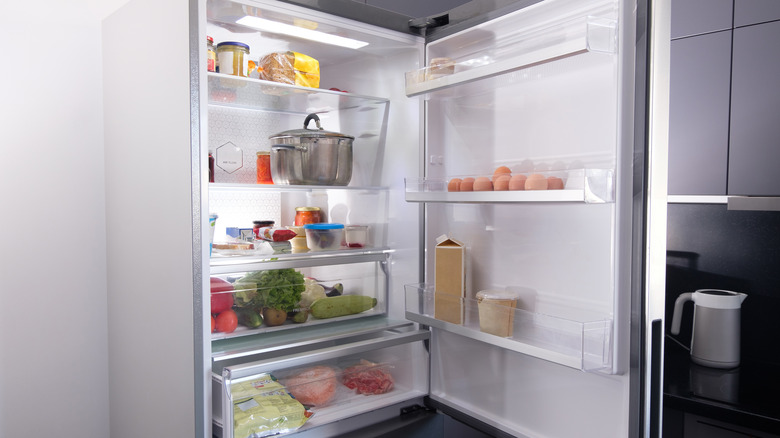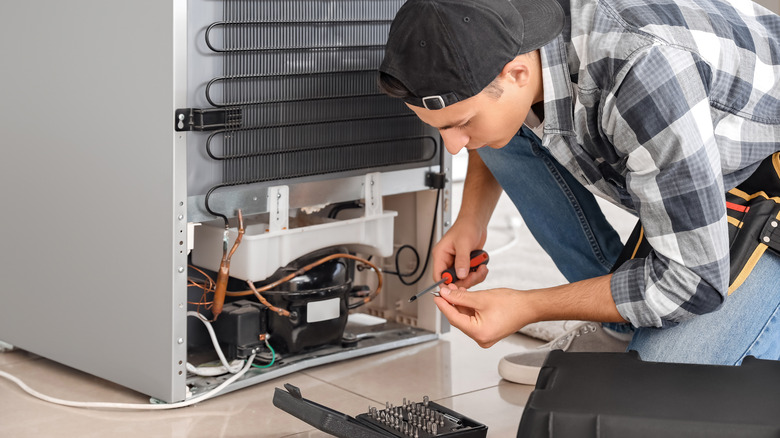What Common Fridge Noises Mean And When You Need Professional Help
Have you ever heard your refrigerator make a noise that sounded... questionable? One minute it's silent, then the next it's shaking and roaring? Before you throw out your fridge and purchase a new one, you need to understand what each sound means. According to Howards, the life expectancy of a refrigerator is between 10 and 20 years. So if you recently purchased a fridge that is now making strange noises, or yours is only a few years old, you should take action immediately to extend its life. Fridges are expensive, and getting ahead of the problem may save you a lot of money.
The moment you notice your fridge is making unusual sounds, try to locate where the noise is coming from. Different areas of the fridge equate to different issues, so by finding the source of the sound, you can figure out the next steps to take. Some noises may indicate a problem that requires a few simple adjustments, and others may call for professional help — the first step is to learn what each noise means.
Noises near the bottom of the fridge
When you hear noises coming from near the bottom or from under your fridge, the issue is most likely with the drip pan, which is used to collect excess water that drains from the refrigerator's interior, states Appliance Repair Specialists. The drip pan is equipped to hold a small volume of water as it evaporates (with a little help from the hot compressor.) If the drip tray becomes loose, it could be causing those loud rattling noises you've been hearing.
Fortunately, it's a simple fix. Turn your refrigerator around, and you'll see the drip pan at the bottom. Make sure it's nice and secure on top of the compressor, and that should stop the rattling sound. Similarly, if you notice water puddles coming from under your fridge, take a look at the drip pan to see if it's overflowing. Empty it out and check on it in a day or so, recommends Home Efficiency Guide, if it is full again, you may have a problem with your compressor.
Noises inside the fridge
Any rattling or squealing sounds coming from inside the fridge indicates there's a problem with the circulation fan, which you can find behind an access panel on the back of the fridge. By cooling the refrigerator's compressor, the circulation fan regulates the temperature inside of the fridge, which prevents it from overheating, HowStuffWorks explains. There are several reasons a circulation fan would stop working, but one of the most common is that the motor is just old, Fix Appliances states. There could also be leakage from your fridge that's seeping onto the fan's motor.
In either case, fixing the circulation fan requires professional assistance. If the motor that operates the fan doesn't work, you'll need to replace the entire circulation fan completely. According to Fixr, a new fan costs anywhere between $120 and $150, which may seem a bit pricey, but it's way cheaper than purchasing an entirely new fridge.
Noises behind the fridge
If you discover sounds coming from behind your fridge, chances are there's something prohibiting the condenser fan from working properly. The condenser fan is responsible for creating cold air that keeps your refrigerator nice and chilly, explains Repair Clinic. To do this, the fan sucks air from around the fridge and uses it to lower the temperature of the condenser coils and compressor, which shoots cold air into your refrigerator. When the fan isn't functioning, your fridge has to compensate by constantly running to keep the inside cool, which may cause buzzing or loud rattling sounds.
To test whether or not your condenser fan is working, unplug your refrigerator, then reach around the condenser coils to locate the fan. Manually turn the fan blades to gauge how well they turn. If you're having trouble turning the blades, it means the condenser fan motor is malfunctioning, notes Flamingo Appliance. If the blades turn freely, all it takes is a simple dusting between the blades to get the fan running smoothly again. Unfortunately, should you have trouble turning the blades, it's again time to call a professional.
Squealing or chirping sounds
The squealing and chirping sound coming from your fridge doesn't mean an animal is trapped inside. It's more likely your evaporator fan isn't working. According to Telco, the evaporator fan eliminates hot air from the interior of the refrigerator and is responsible for keeping the freezer at the correct temperature. Without the evaporator fan functioning properly, the temperature inside your fridge will rise, and your food will spoil. If you believe your evaporator fan is to blame for the noisy chirping sounds, you need to act quickly to prevent wasting food.
You can check the evaporator fan motor for any visible damage, but more often than not, the motor is broken, and it's time to call a specialist to install a new one, says Flamingo Appliance. Be aware that appliance repair professionals will charge you just for coming to your house and giving you a diagnosis, which will cost you somewhere between $50 and $150. In most cases, you can get the fee waived if you let them mend your refrigerator, American Home Shield states.
Humming sounds
When your refrigerator is making humming noises, there are several possible sources of the sound, such as the ice maker or an air vent, Fast Fridge Repairs explains. If the humming is coming from the ice maker, it means the ice maker isn't receiving enough water to actually make the ice. To ensure a sufficient water supply, take a look at the water lines (which are typically located under your kitchen sink) and make sure the isolation valves are open. If the ice maker continues to run without water, it could potentially ruin your ice maker.
Alternatively, the air vents inside the fridge could be creating the humming sounds. This is due to the lack of airflow, which is typically caused by items blocking your air vent, which prohibits the air from properly circulating. When the air becomes trapped, it makes a humming sound. To solve this problem, all you need to do is re-organize the items in your fridge so the vents aren't blocked.





